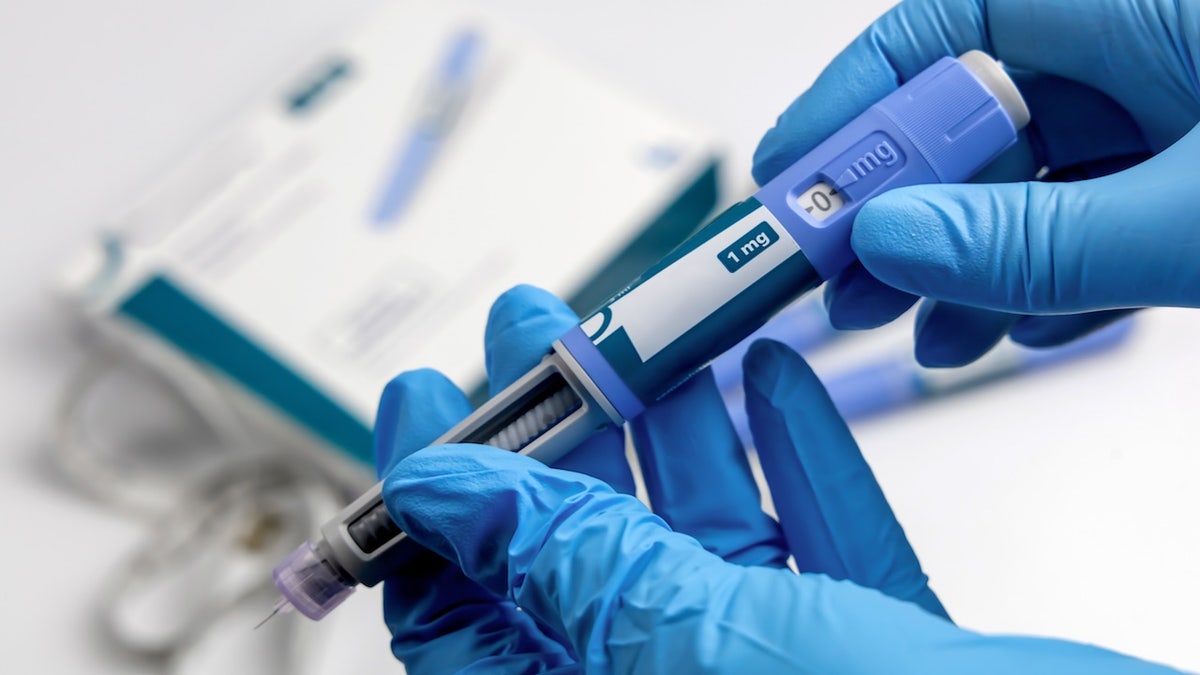NEWYou can now listen to Fox News articles!
Weight-loss surgery was shown to be five times more effective than weekly injections of popular GLP-1 receptor agonists, including semaglutide (such as Ozempic) and tirzepatide (such as Mounjaro).
The finding comes from a recent study presented this week at the American Society for Metabolic and Bariatric Surgery (ASMBS) 2025 Annual Scientific Meeting in Washington.
Researchers looked at “real-world” electronic medical record data of 51,085 patients at NYU Langone Health and NYC Health + Hospitals.
HAIRSTYLISTS AND MEDICAL EXPERT CONFIRM TEMPORARY HAIR LOSS AFFECTING OZEMPIC USERS
All patients had a body mass index (BMI) of at least 35.
They had either undergone bariatric surgery (sleeve gastrectomy or Roux en-Y gastric bypass) or were prescribed injectable semaglutide or tirzepatide between 2018 and 2024.

Weight-loss surgery was shown to be five times more effective than weekly injections of popular GLP-1 receptor agonists. (iStock)
(Sleeve gastrectomy reduces the size of the stomach to help obese patients lose weight; gastric bypass involves rerouting the digestive tract to bypass a portion of the small intestine, according to Mayo Clinic.)
Patients who had one of the bariatric surgeries had lost an average of 58 pounds two years later, while those who had taken a GLP-1 prescription medication for at least six months lost 12 pounds, the researchers found.
LOW-CALORIE DIETS LINKED TO SURPRISING MENTAL HEALTH EFFECT, NEW RESEARCH SHOWS
The surgical outcomes marked 24% total weight loss compared to 4.7% for injectable medications, according to the study press release.
Those who took the GLP-1 drug for a full year showed more weight loss (7%), but it was still less than those who had undergone one of the surgeries.

Patients who had one of the bariatric surgeries had lost an average of 58 pounds two years later, while those who had taken a GLP-1 prescription medication for at least six months lost 12 pounds. (iStock)
These outcomes differ from the results of clinical trials.
“Clinical trials show weight loss between 15% and 21% for GLP-1s, but this study suggests that weight loss in the real world is considerably lower even for patients who have active prescriptions for an entire year,” said lead study author Avery Brown, MD, a surgical resident at NYU Langone Health, in the press release.
As many as 70% of patients with GLP-1 prescriptions may discontinue treatment within one year, according to Brown.
“GLP-1 patients may need to adjust their expectations, adhere more closely to treatment, or opt for metabolic and bariatric surgery to achieve desired results,” he advised.
Surgical outcomes marked 24% total weight loss compared to 4.7% for injectable medications.
In future studies, the researchers plan to explore strategies for improving outcomes for patients taking GLP-1s and identifying which patients are better candidates for surgery versus injectable medications, the release stated.
The prevalence of GLP-1 drugs is higher than bariatric surgeries. Studies show that around 12% of Americans have taken a GLP-1, while 6% are currently taking them.
CLICK HERE TO SIGN UP FOR OUR HEALTH NEWSLETTER
However, more than half of patients stop taking them after one year, and 72% abandon them after two years, research has found.
Only about 1% of patients who meet the criteria for metabolic and bariatric surgeries underwent one of those procedures in 2023, according to the ASMBS.

Only about 1% of patients who meet the criteria for metabolic and bariatric surgeries underwent one of those procedures in 2023. (AP Photo/Kirsty Wigglesworth, File)
The study received grant funding from the National Center for Advancing Translational Sciences at the National Institutes of Health (NIH).
Novo Nordisk, maker of Ozempic and Wegovy, declined a request for comment.
For more Health articles, visit www.foxnews.com/health
Fox News Digital also reached out to the researchers and to Eli Lilly, maker of Mounjaro and Zepbound.

